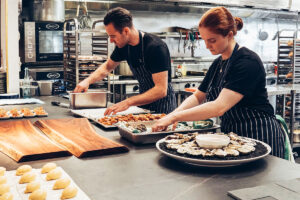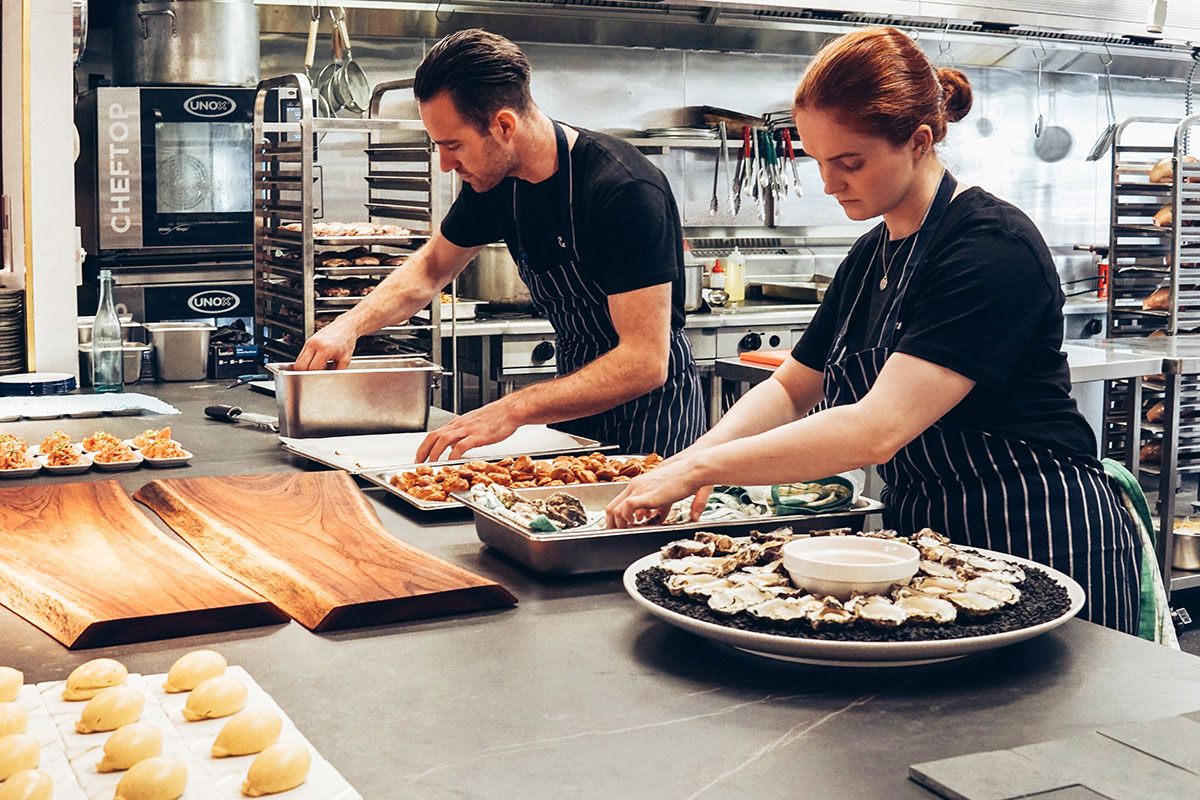Disclaimer: The information on our website is provided for general information purposes only. We make no representations or warranties of any kind, express or implied, about the completeness, accuracy, reliability, suitability or availability with respect to the website or the information contained on our website for any purpose. Any reliance on such information is therefore strictly at your own risk and we are not liable for any damages or losses arising out of or resulting from your reliance on any information contained on our website.
A food prep worker supports kitchen staff in getting ingredients ready for dishes in restaurants or other food service places. Although their work is repetitive and supervised by more experienced employees, food prepping can get your foot in the door. Next, let’s watch a video to learn what a food prep worker does.
How to Become Food Prep Worker

Food preparation workers do not require formal education. They commonly learn their skills on the job in a few weeks. Workers begin their training under the supervision of experienced employees learning the basics of kitchen tasks. Food preparation workers receive training in safety in the workplace. This is especially important when working with sharp knives, ovens and other hot surfaces, as well as the proper handling food and sanitation practices.
If you do not have food prep experience, employers often look for workers with experiences in a similar field, such as grocery stores, bakeries, butchers, or servers in a restaurant. Food preparation workers may enjoy the foodservice industry and advance into becoming chefs, cooks, or restaurant management through trade schools, colleges, or universities.
This job is physically demanding. Therefore, physical stamina is necessary and these workers often stand for long hours and lift heavy pots and boxes. Food prep workers must have excellent listening skills to follow directions in a noisy and fast-paced environment and must well with co-workers, management, cooks, or chefs and remain calm in stressful situations in the kitchen. High school students interested in this career can take home economics, business, and agriculture classes, among other courses. They can also try for a part-time job at a restaurant to explore what a career in food service is like.
Food Prep Worker Job Description
Here we will list a few similar ways a food prep worker supports a kitchen and staff. They clean and sanitize equipment, utensils, work areas, and dishes. They also follow directions in weighing and measuring food used that day. They repetitively slice and dice vegetables and fruit needed by the cooks or chefs and often required to prepare meats for cooking, such as seafood, poultry, or beef. They may need to prepare the ingredients for the salads and keep a salad bar or buffet stocked, clean, and chilled.
Food safety requires prep workers to store food in designated containers to guard against spoilage and take the temperature of the storage areas to ensure they meet the standards of the kitchen. They also record the current temperatures for reference. Food preparation workers ensure that pots, pans, and utensils are clean, stored in the correct location, and within easy reach of the chef or cook. Restaurant workers may use coffeemakers, espresso machines, and soda machines to make beverages and use commercial-grade equipment, such as slicers, grinders, blenders, and dishwashers. The food industry can be an exciting career and lead to other opportunities within the occupation. We wish you success in your career decision!
Food Prep Worker Career Video Transcript
Food preparation workers work in cafeterias and restaurants under the direction of cooks, chefs, and food service managers. They prepare cold foods, slice meat, peel and cut vegetables, brew coffee or tea, and more. When needed, they retrieve food, clean and put away equipment, and unload deliveries. They may also use kitchen equipment, such as dishwashers, blenders, slicers, or grinders. Some food preparation workers stock and operate soda machines, coffeemakers, and espresso machines.
The work is often strenuous. Workers may stand for hours at a time cleaning or preparing ingredients. Some may be required to lift and carry heavy pots or supplies. In fast-paced kitchens, staff must work together to ensure dishes are prepared quickly and properly. Kitchens have many potential safety hazards and food preparation workers have a high rate of minor injuries. To reduce risks, workers often wear gloves, aprons, and nonslip shoes.
About half of food preparation workers work part time early mornings, late evenings, weekends, and holiday shifts are common. Those working in school cafeterias generally have more regular hours, with time off during school vacations. Seasonal employment is also available. Food preparation workers typically learn through on-the-job training that covers how to handle and prepare food, as well as basic sanitation and workplace safety regulations. No formal education or previous work experience is required.

